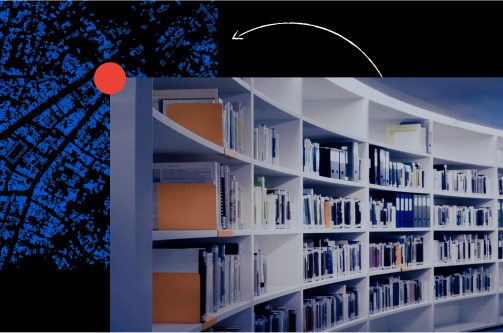AI for social good awards
The AI for Social Good awards, in partnership with Google.org, aim to help academics and nonprofits develop machine learning-based technologies that can improve people’s lives — especially in underserved communities. Through this program, we aim to bring nonprofits and academics together to collaborate on projects that tackle social, humanitarian and environmental challenges. Each project team in the program receives funding, technical contributions from Google and access to computational resources.
Academics in this program will be recognized as "Impact Scholars" for their contributions towards advancing research for social good.
Previous years:
- 2021
- 2020
Agriculture
Aaditeshwar Seth (Indian Institute of Technology, Delhi) and Centre for Collective Development (India)
Building AI-based Market Intelligence Systems for Farmer Collectives
Saket Anand (Indraprastha Institute of Information Technology Delhi) and M. S. Swaminathan Research Foundation (India)
High-resolution Satellite Imagery for Modeling the Impact of Aridification on Crop Production: Paddy Cultivation in the Cauvery Delta
Long Tran-Thanh (University of Warwick) and AfriScout (Kenya)
Incentive Engineering and Truthful Mechanisms for Grassland Quality and Local Market Price Estimation in Africa
John Dickerson (University of Maryland, College Park) and Kheyti (India)
What Should I Grow Today so I Make Money Tomorrow? Using Social, Environmental, and Market Data to Support Small Farmers’ Crop Planning
Godliver Owomugisha (Busitema University) and Papoli Community Development Foundation (Uganda)
Adoption of smartphone agro-applications for field-based disease diagnosis and real-time feedback for smallholder farmers
Daphney-Stavroula Zois (University at Albany, SUNY) and AGRI-WEB (Ghana)
Towards Achieving Better Market Access for Smallholder Farmers
Conservation
Trevor Darrell (UC Berkeley) and Wildlife Conservation Society (Nigeria)
AI for Animal Census
Nataliya Tkachenko (University of Oxford) and Panthera (Nepal, India, Malaysia, Senegal)
Applying AI to Data Challenges in Wildlife Conservation
Poonam Goyal, Navneet Goyal (BITS Pilani) and Wildlife Conservation Society (India)
Collating and analyzing multi-modal, multi-lingual data for countering wildlife crime
Wei Guo (University of Tokyo), National Centre for Biological Sciences, Bangalore and Bioversity International (India)
Exploring and Managing human-bee conflict in Asian cities using AI
Amulya Yadav (Penn State University) and Dakshin Foundation (India)
Harnessing Agent-Based Models to Mitigate Marine Conservation Conflict in the Andamans
Gianluca Demartini (University of Queensland) and Wild Chimpanzee Foundation (Côte d’Ivoire, Liberia, Guinea)
Human-in-the-loop Chimpanzee Identification
Ashwin Srinivasan (BITS Pilani, Goa Campus) and Mara Elephant Project (Kenya)
Human-in-the-Loop Labelling System for Elephant Identification and Tracking
Fei Fang (Carnegie Mellon University) and World Wide Fund for Nature (India, Nepal, Thailand)
Media Text Monitoring for Timely Conservation Actions
Patrick McSharry (Carnegie Mellon University) and Institute for Global Environmental Strategies (Japan)
Using AI to impute missing data in the SDG indicators and test causality
Andrew Katumba and Joyce Nakatumba-Nabende (Makerere University) and Moja Global (Uganda)
Using Machine Learning to Predict Deforestation
Haifeng Xu (University of Virginia) and World Wildlife Fund (Lao PDR)
Combating Poaching through Community Influence
Public Health
Vipul Arora (IIT Kanpur) and CARE India Solutions for Sustainable Development (India)
AI-based Smart Assistant for Child Deliveries in Low Resource Areas
Thanh H. Nguyen (University of Oregon) and Arogya World (India)
Artificial Intelligence for Health Promotion Intervention in India
Himabindu Lakkaraju (Harvard University) and Living Goods (Kenya, Uganda)
Augmenting Community Health Workers Efficacy using AI
Ayan Mukhopadhyay (Vanderbilt University) HelpMum (Nigeria)
Data-driven Vaccine Demand Forecasting and Health Interventions in Nigeria
Conrad Tucker (Carnegie Mellon University) and Centre for Chronic Disease Control (India)
Deep Learning for Oral Cancer Screening and Referral: A Feasibility Investigation
Arunesh Sinha (Singapore Management University) and D-tree (Zanzibar)
Incentive Design for Better Health Coverage
U. Deva Priyakumar (IIIT Hyderabad) and Lord's Education Health Society | Wadhwani Initiative for Sustainable Healthcare (India)
Intelligent Assistive System for Home-Based Care Delivery
Yiqun Xie (University of Maryland, College Park) and Aquaya Institute (Kenya)
Leave No One Behind: Spatial AI Enabled Settlement Mapping to Enhance WASH Access for Vulnerable Populations
Toby Walsh, Yang Song (UNSW Sydney) and Mothers2Mothers (South Africa)
Predicting early exit from the m2m health program
Malay Bhattacharyya (ISI Kolkata) and Molecular Diagnostics, Counseling, Care and Research Center (India)
Systematic clinical intervention for minors affected by Duchenne muscular dystrophy
Toby Walsh, Yang Song (UNSW Sydney) and Infoxchange (Australia)
The Bootstrap Problem in Recommender Systems
Amulya Yadav (Penn State University) and Jacaranda Health (Kenya)
Using AI to Prevent the Risk of Maternal and Neonatal Deaths in Kenya
Rayid Ghani (Carnegie Mellon University) and Energy Harvest Charitable Trust (India)
Reducing Crop Burning to Improve Air Quality in India
Conservation
Pradeep Varakantham (SMU, Singapore) and Wildlife Conservation Trust (India)
Predicting human-wildlife conflict
Bo An (NTU, Singapore) and Ashoka Trust for Research in Ecology & The Environment (India)
Improving dam and barrage water release
Public Health
Tavpritesh Sethi (IIIT, Delhi), Pradeep Varakantham (SMU, Singapore) and Swasti (India)
Improving health information for high HIV/AIDS risk communities
Balaraman Ravindran ( IIT, Madras) and ARMMAN (India)
Predicting risks for expectant mothers
Arunesh Sinha (SMU, Singapore) and Khushibaby (India)
Improving consistency of healthcare information input
Education sensing
Mitesh Khapra and Pratyush Kumar (AI4Bharat , IIT Madras) and Storyweaver (India)
Supporting publishing of underserved Indian language content
Our resources are available to everyone
We regularly share datasets, tools and services with the broader scientific community to be used, shared, and built on.
See our resources